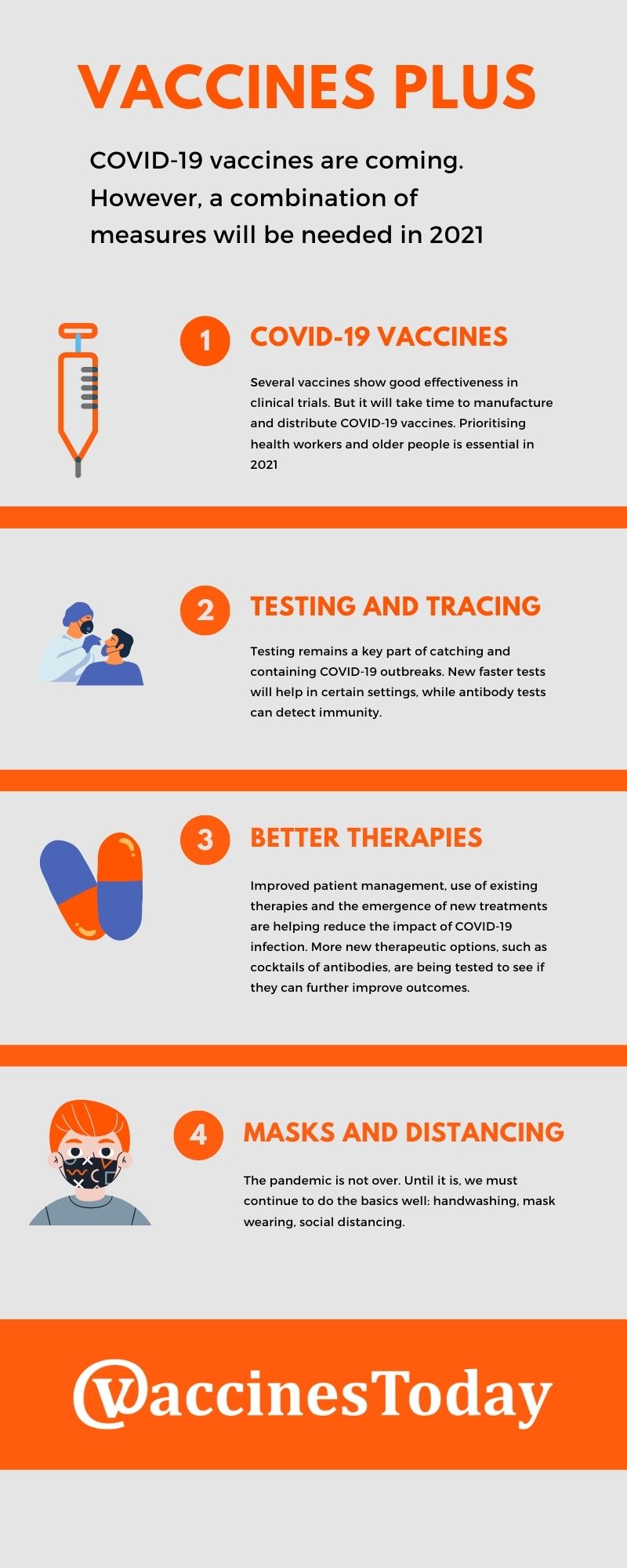This time last year, most of us had not heard of SARS-CoV-2 or the disease it causes, COVID-19. By 11 March 2020, the World Health Organisation (WHO) declared a global pandemic.
Timeline of the COVID-19 response
By that time, vaccine researchers were already in the early stages of vaccine development. The genome of the new virus had been sequenced and published in January, and scientists were exploring a variety of ways to create vaccines that could offer a route out of the crisis. Some built on previous work on SARS, MERS and others vaccines, while a number of groups began using new technologies (including mRNA vaccines).
The scale of the global effort was unprecedented but the experience of tackling diseases such as Ebola provided valuable lessons on how to develop vaccines at speed, without compromising on safety. Close collaboration between regulators, governments, companies and academics was vital.
The hurdles to successfully develop a COVID-19 vaccine were many. There was no guarantee that any of the vaccines would work. Several challenges lie ahead in distributing and administering the vaccines, and ensuring people will avail of the vaccine when it is offered.
Meet the scientists behind COVID-19 vaccines
There will be debate about which groups governments should prioritise for vaccination and how equitable distribution can be achieved at a global level. CEPI and the COVAX facility will have a key role to play. There is still much to learn about how the new vaccines might affect disease transmission. And, while the approval of the first vaccine offers reason to believe the impact of COVID-19 on daily life will reduce in the coming year, it is just one weapon in the growing arsenal developed to fight the disease.
Vaccines will not end the COVID-19 crisis overnight. But their successful development, approval and distribution is a remarkable achievement. Our next shared task is to explain how these vaccines work, to answer people’s questions and address any concerns, and to support vaccine acceptance. After all, vaccines do not prevent diseases, vaccination does.




